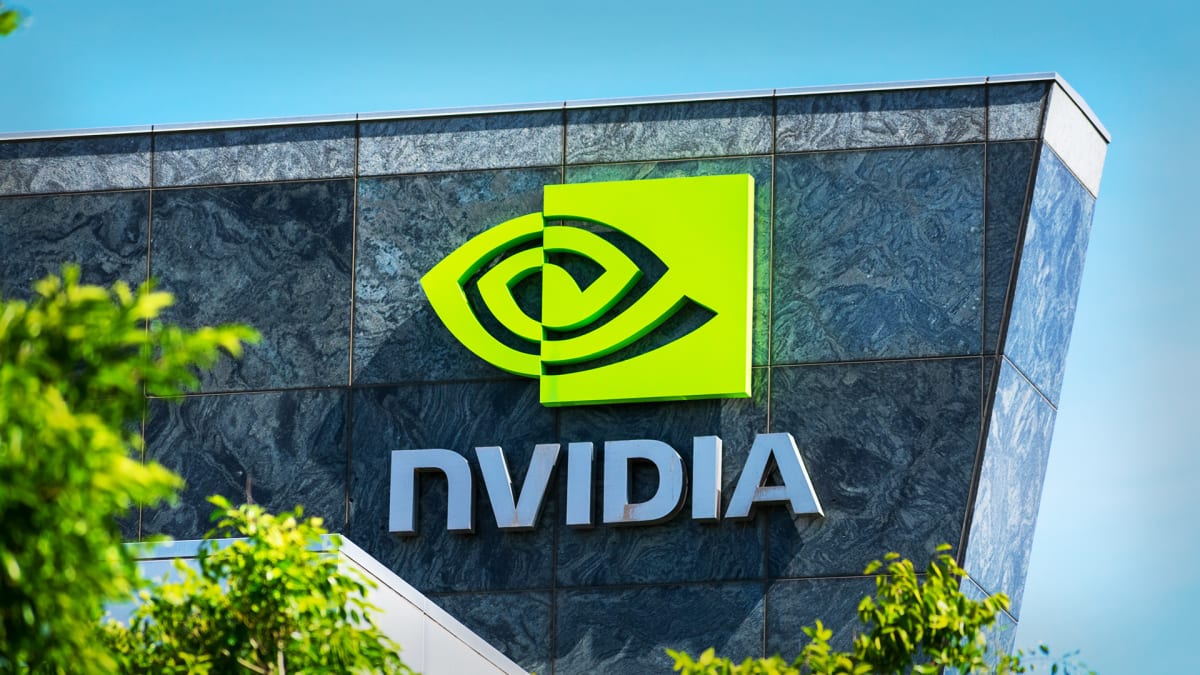
Nvidia (NVDA) shares traded at an all-time high Thursday after the group said a surge in demand for its AI-focused semiconductors powered a first quarter earnings beat and a robust near-term outlook for what is now the world's most-valuable chipmaker.
Nvidia sees current quarter revenues of around $11 billion, plus or minus 2%, compared with the Wall Street consensus of $7.15 billion, with a gross margin of around 70%. That likely equates to earnings in the region of $2.04 per share, nearly double the Street's prior $1.07 per share forecast for the quarter.
For the three months ending in April, Nvidia also blasted Street forecasts with a bottom line of $1.09 per share on revenues of $7.19 billion, powered by record data center sales of $4.28 billion, a 14% increase that Nvidia said was led by growing demand for generative AI and large language models using GPUs based on our NVIDIA Hopper and Ampere architectures".
"We expect this sequential growth to largely be driven by data center, reflecting a steep increase in demand related to generative AI and large language models," CFO Colette Kress told investors on a conference call late Wednesday. "This demand has extended our data center visibility out a few quarters, and we have procured substantially higher supply for the second half of the year."
Nvidia shares, which have already gained more than 115% so far this year, were marked 25.9% higher in mid-day Thursday trading to change hands at $384.70 each, a move that would value the Santa Clara, California-based chipmaker at around $955 billion.
The stock hit an all-time high of $394.80 each earlier in the session.
"There is not one better indicator around underlying AI demand going on in the hyperscale/cloud and overall enterprise market than the foundational Nvidia story," said Wedbush analyst Dan Ives.
"We view Nvidia at the core hearts and lungs of the AI revolution given its core chips train and deploy generative AI applications like ChatGPT," he added. "For any investor calling this an AI bubble (crypto, metaverse, now AI bubble thesis) we would point them to this Nvidia quarter and especially guidance which cements our bullish thesis around AI and speaks to the 4th Industrial Revolution now on the doorstep with AI."
Rival chipmakers were also moving higher in the wake of Nvidia's revenue guidance, with Advanced Micro Devices (AMD) shares up 10.5% and Micron (MU) adding 3.9%. AI leaders in the search markets were also on the move, with Microsoft (MSFT) adding 3.7% and Google parent Alphabet (GOOGL) rising 2%, helping Nasdaq surge more than 226 points in the afternoon session.
Earlier this year, Nvidia CEO Jensen Huang described AI as having reached and "inflection point" as the world's fastest-developing technology after the group unveiled a new AI "supercomputer", known as Nvidia DGX.
The platform allows business customers to access AI-related technology through cloud computing providers such as Microsoft and Oracle (ORCL), essentially creating a new market for "AI-as-a-service" to thousands of companies around the world.
That ability to address the new AI investment explosion, sparked in part by the unveiling of the ChatGPT chatbot earlier this year, could put Nvidia in a leadership position within a market that could be worth more than $600 billion.
Gartner, the management consultancy group, predicts so-called generative AI will account for around 10% of all data produced by the year 2025, up from just 1% in 2021. Analysts at KGI see this as adding between $5 billion and $6 billion to Nvidia's top-line revenue within the next three years.
"What was highly surprising to us, was the magnitude of growth Nvidia is forecasting for its July quarter, with its visibility said to also be extending well into the second half of the year," said Benchmark analyst Cody Acree, who carries a 'buy' rating with a $475 price target on the stock.
"With Nvidia being uniquely situated to capitalize on the computing industry’s trends of accelerated computing and generative AI, we believe the company’s largest challenge for at least the forecast period, will be its ability to secure adequate capacity to meet the aggressive demand for its wide array of data center computing, connectivity, and accelerated processing solutions," he added.







